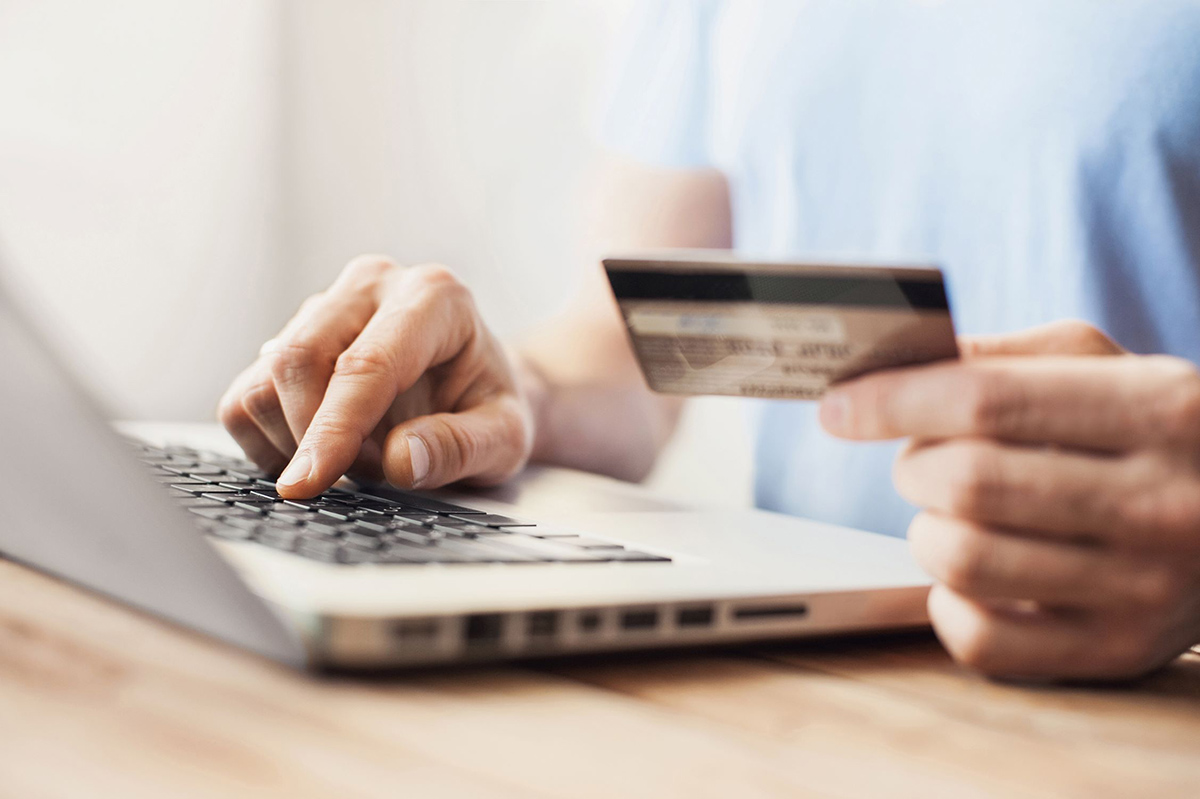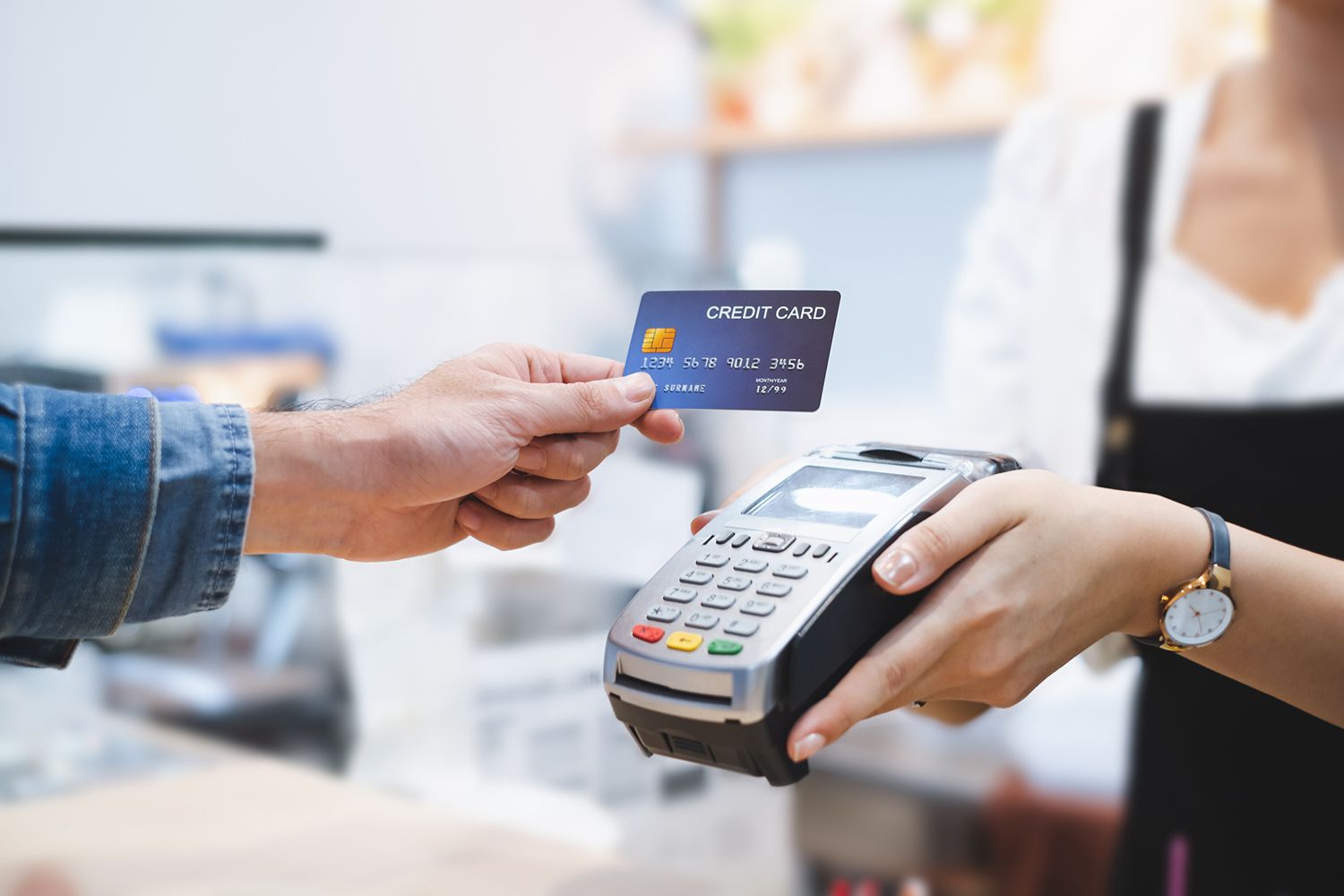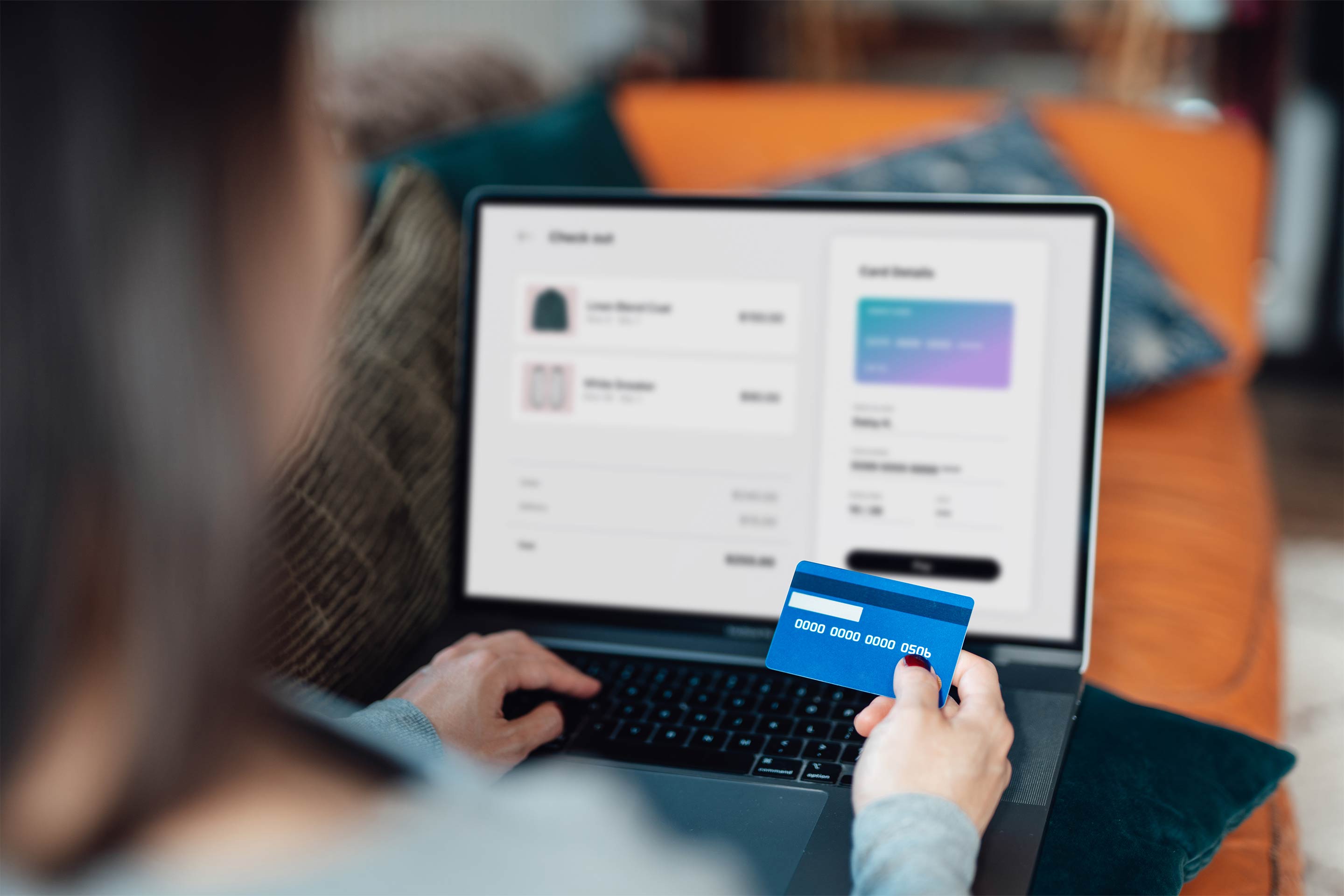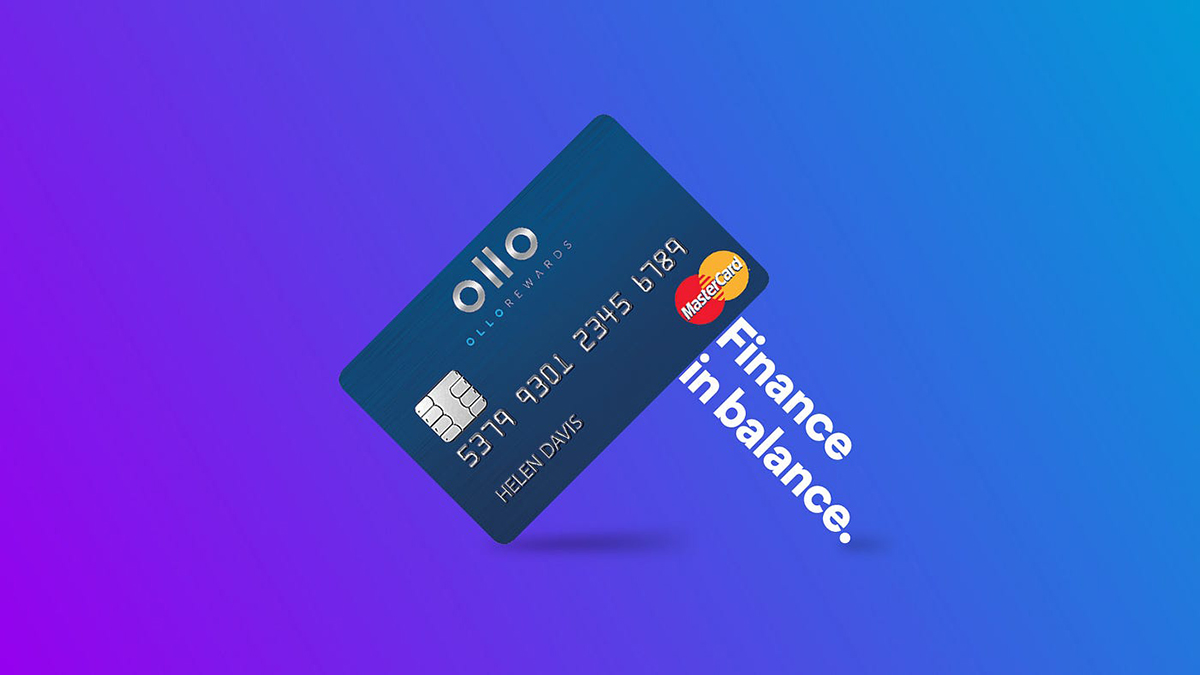

Finance
How To Hide Credit Card Transactions
Modified: February 21, 2024
Discover how to keep your financial transactions private with our easy-to-follow guide on hiding credit card transactions. Safeguard your finances with these essential finance tips.
(Many of the links in this article redirect to a specific reviewed product. Your purchase of these products through affiliate links helps to generate commission for LiveWell, at no extra cost. Learn more)
Table of Contents
- Introduction
- Understanding the Importance of Hiding Credit Card Transactions
- Using Cash to Make Purchases
- Online Shopping and Virtual Credit Cards
- Making Use of Prepaid Cards
- Utilizing Peer-to-Peer Payment Apps
- Taking Advantage of Digital Wallets
- Using Cryptocurrencies for Transactions
- Keeping Personal Information Secure
- Conclusion
Introduction
Welcome to the world of financial privacy and security. In an era where our personal information is constantly at risk of being exposed, it’s important to take measures to protect our credit card transactions. Whether you’re concerned about potential identity theft or simply want to maintain a level of privacy, there are various methods you can employ to hide your credit card transactions.
In this article, we’ll explore different strategies for safeguarding your financial activities and ensuring that your sensitive information remains confidential. From using cash for in-person purchases to leveraging the power of digital wallets and cryptocurrencies, we’ll cover a range of options to meet your needs.
As technology continues to advance, so do the methods used by cybercriminals to gain unauthorized access to our personal data. It’s crucial to stay informed about the latest security threats and take proactive steps to mitigate the risks associated with online transactions. By implementing the tips and techniques discussed in this article, you’ll be well on your way to keeping your credit card transactions under wraps.
Remember, while these strategies can help protect your financial privacy, they are not foolproof. It’s essential to exercise caution and remain vigilant when it comes to your personal information. With that in mind, let’s dive into the various methods you can use to hide your credit card transactions and maintain a sense of security in an increasingly digital world.
Understanding the Importance of Hiding Credit Card Transactions
When it comes to financial transactions, keeping your credit card purchases private is not just a matter of preference, but also a way to protect yourself from potential risks. Your credit card contains valuable personal and financial information that, if falling into the wrong hands, can lead to identity theft, unauthorized charges, and other financial frauds.
By hiding your credit card transactions, you minimize the chances of your sensitive information being exposed. This is particularly important in today’s digital age, where cyber threats are rampant. Hackers are constantly looking for vulnerabilities to exploit, and the more you can do to shield your financial activity, the better.
Additionally, privacy plays a crucial role in preserving your financial autonomy. Your spending habits and purchase history can be used by companies to target you with tailored advertisements or to determine your creditworthiness. Keeping this information private can help prevent unwanted influences on your financial decisions and protect your personal autonomy.
Moreover, hiding your credit card transactions can also be important for personal reasons. You might want to maintain privacy when purchasing gifts or surprise items for loved ones. Sometimes, you may not wish to share information about your financial transactions with certain individuals or institutions. Hiding your credit card transactions gives you control over who has access to your financial activities.
By taking steps to hide your credit card transactions, you regain a sense of control and security. You can protect your personal and financial information from falling into the wrong hands, maintain privacy in your financial decisions, and guard against potential threats and vulnerabilities.
Now that we understand the importance of hiding credit card transactions, let’s explore some effective methods that can help you keep your financial activities confidential and secure.
Using Cash to Make Purchases
In a digital world where credit and debit cards are the norm, using cash as a method of payment may seem outdated. However, it can be an effective way to hide your credit card transactions and protect your financial privacy.
When you pay with cash, there is no electronic trail that can be easily traced back to your credit card or bank account. This means that your purchases cannot be linked directly to you, providing an extra layer of anonymity. Cash transactions do not leave a digital footprint, reducing the risk of your financial activity being monitored or tracked.
Using cash also eliminates the potential for your credit card information to be compromised during online or card-present transactions. By avoiding the use of your credit card altogether, you minimize the chances of falling victim to data breaches or skimming devices that can capture your card details.
Additionally, paying with cash can help you stick to a budget. When you physically see the money leaving your hand, it can make you more mindful of your spending habits. This can be especially helpful for impulse purchases or controlling discretionary spending.
However, it’s important to note that using cash has its limitations. Some businesses, especially those in the digital realm, may not accept cash as a form of payment. It’s also essential to ensure that you securely handle and store your cash to avoid the risk of theft or loss.
In situations where cash is not accepted or practical, there are alternative methods that can help you hide your credit card transactions. Let’s explore some of these options in the following sections.
Online Shopping and Virtual Credit Cards
Online shopping has become increasingly popular, offering convenience and a wide range of products at our fingertips. However, it also poses risks to our financial privacy, as the digital transactions can leave traces of our credit card information. To overcome this challenge, virtual credit cards can serve as a useful tool to hide your credit card transactions while shopping online.
Virtual credit cards, also known as disposable credit cards or single-use credit cards, are temporary credit card numbers that can be generated for specific online transactions. These temporary numbers are linked to your actual credit card but have no connection to your personal information or the original card number.
When making an online purchase using a virtual credit card, the temporary number is used instead of your actual credit card number. This ensures that your sensitive financial information remains hidden from merchants and potential hackers. Even if the virtual credit card number is compromised, it cannot be linked back to your actual credit card or personal details.
Furthermore, virtual credit cards often come with additional security features. Some issuers allow you to set spending limits or expiration dates for the virtual card, adding an extra layer of protection. If a virtual card is compromised or you suspect suspicious activity, it can be easily canceled and replaced with a new one, minimizing any potential damage.
Using virtual credit cards provides peace of mind while shopping online. It allows you to enjoy the convenience of e-commerce while reducing the risk of your credit card information being exposed or misused. Many credit card issuers offer virtual credit card services as an added benefit, so be sure to check if your provider offers this feature.
It’s important to note that while virtual credit cards are a valuable tool for online shopping, they may not be suitable for all situations. Some merchant websites or services may not accept virtual credit cards. Additionally, virtual credit cards are typically limited to online transactions and cannot be used for in-person purchases.
In situations where virtual credit cards are not an option, there are alternative methods to hide your credit card transactions. Let’s explore some of these strategies in the following sections.
Making Use of Prepaid Cards
Prepaid cards are another effective way to hide your credit card transactions and maintain financial privacy. These cards are similar to debit cards, but instead of being linked to a bank account, they are loaded with a specific amount of money that you prepay.
When using a prepaid card, your purchases are deducted from the prepaid balance rather than being charged to a credit card or linked to your bank account. This means that there is no direct association between your personal information and the transactions made with the prepaid card.
Prepaid cards can be purchased from various financial institutions, retailers, and online platforms. Some prepaid cards are reloadable, allowing you to add funds as needed, while others are designed for one-time use. Depending on your needs, you can choose the type of prepaid card that suits you best.
One of the advantages of using prepaid cards is that they can be used for both online and in-person purchases. They can be utilized in situations where cash is not accepted, giving you the flexibility to make transactions while keeping your credit card information hidden.
Another benefit of prepaid cards is that they do not impact your credit score. Since prepaid cards don’t involve borrowing money or extending credit, there is no need for a credit check or a credit history. This can be advantageous if you’re looking to maintain financial privacy without impacting your creditworthiness.
It’s important to note that prepaid cards may come with fees, such as activation fees, reloading fees, or transaction fees. Be sure to review the terms and conditions of the prepaid card before making a purchase to understand any associated costs.
While prepaid cards can be a useful tool for hiding credit card transactions, it’s essential to remember that they are not linked to the same consumer protections as traditional credit cards. If your prepaid card is lost, stolen, or compromised, you may have limited recourse compared to the safeguards provided by credit card issuers.
Now that we’ve explored using prepaid cards to hide credit card transactions, let’s discuss another method that leverages the convenience of peer-to-peer payment apps.
Utilizing Peer-to-Peer Payment Apps
Peer-to-Peer (P2P) payment apps have revolutionized how we send and receive money. These apps allow you to transfer funds directly to another person’s account using your smartphone, eliminating the need for traditional payment methods like cash or checks. While P2P payment apps are convenient for everyday transactions, they can also be used to hide your credit card transactions.
When making a payment using a P2P app, you have the option to link your credit card as the funding source. By doing this, you can use your credit card to send money to another person while keeping the details of your credit card transaction hidden. The recipient will only see the funds coming from your P2P app, not the underlying credit card information.
This method is particularly useful when you need to make a payment without disclosing your credit card details to the recipient. It adds an extra layer of privacy and security to your financial transactions, reducing the risk of your credit card information being exposed or misused.
Additionally, P2P payment apps often provide the option to add a note or description to the transaction. This allows you to specify the purpose of the payment without revealing sensitive information. For example, if you’re splitting a dinner bill with friends, you can simply note it as “shared expense” rather than detailing the specific items or amounts.
Another advantage of using P2P payment apps is the ability to easily split expenses among a group. Whether you’re going on a trip with friends or organizing a gift for a mutual acquaintance, P2P apps allow you to divide costs without the need for physical cash or direct credit card transactions. This not only keeps your individual transactions hidden, but also streamlines the payment process for everyone involved.
However, it’s important to keep in mind that P2P payment apps may charge transaction fees for using a credit card as the funding source. It’s essential to review the terms and conditions of your chosen app to understand any associated costs.
Now that we’ve discussed how P2P payment apps can help hide your credit card transactions, let’s explore the world of digital wallets and their potential for financial privacy.
Taking Advantage of Digital Wallets
Digital wallets have gained significant popularity in recent years as a convenient and secure method of making payments. These virtual wallets securely store your credit card information, allowing you to make purchases with a simple tap or click. However, digital wallets also offer features that can help hide your credit card transactions and protect your financial privacy.
One of the key benefits of using a digital wallet is that it adds an extra layer of security to your transactions. When using a digital wallet, your credit card information is not directly shared with the merchant. Instead, a unique token or encrypted code is used to process the payment, ensuring that your sensitive financial details remain hidden.
By using a digital wallet, you can also consolidate your credit card information into one secure location. This reduces the risk of your credit card details being exposed in multiple online transactions, as your information is stored within the digital wallet’s secure environment.
Furthermore, many digital wallets offer additional security features, such as biometric authentication (e.g., fingerprint or facial recognition) or two-factor authentication. These features help to ensure that only you can authorize transactions, providing an extra level of protection against unauthorized access.
In addition to the security benefits, digital wallets offer a convenient way to track and manage your transactions. Through the digital wallet app, you can easily review your purchase history, categorize expenses, and set budgeting goals. This can help you maintain better control over your spending while keeping your transactions hidden from prying eyes.
It’s important to note that not all merchants accept digital wallets, so it’s essential to check if your preferred stores or online platforms support the use of digital wallet payments. Additionally, certain digital wallet providers may charge fees for certain transactions or services, so it’s important to review the terms and conditions of your chosen digital wallet provider.
Now that we’ve explored digital wallets as a method to hide credit card transactions, let’s dive into the world of cryptocurrencies and their potential for financial privacy and anonymity.
Using Cryptocurrencies for Transactions
Cryptocurrencies have gained increasing popularity as a decentralized, secure, and private form of digital currency. Utilizing cryptocurrencies, such as Bitcoin or Ethereum, for transactions can offer a high level of anonymity and help hide your credit card transactions.
When using cryptocurrencies, transactions are recorded on a public ledger called the blockchain. However, the identities of the parties involved in the transactions are not directly linked to their cryptocurrency wallet addresses. Instead, these addresses serve as pseudonyms, providing a layer of privacy and separating your personal information from the transaction details.
By using cryptocurrencies for transactions, you can keep your credit card information entirely separate from your financial activities. Instead of providing your credit card details for each purchase, you can simply provide your cryptocurrency wallet address, ensuring that your sensitive financial information remains hidden.
In addition to privacy, cryptocurrencies offer security benefits. Transactions made with cryptocurrencies are encrypted and digitally signed, making them resistant to fraud and tampering. This provides an added level of protection compared to traditional credit card transactions, which can be vulnerable to data breaches or unauthorized charges.
It’s important to note that while cryptocurrencies offer a high degree of privacy, they also come with their own set of considerations and risks. Cryptocurrency prices can be volatile, and there may be additional transaction fees or conversion costs when trading between cryptocurrencies and traditional fiat currencies.
Furthermore, not all merchants accept cryptocurrencies as a form of payment. Before using cryptocurrencies for transactions, it’s important to check if the merchant or online platform supports cryptocurrency payments.
Lastly, it’s essential to exercise caution and practice good security measures when it comes to managing your cryptocurrency wallet. Keep your private keys and wallet information secure, and consider using hardware wallets or offline storage options for enhanced protection against online threats.
Now that we’ve explored how cryptocurrencies can help hide your credit card transactions, let’s discuss the importance of keeping your personal information secure in general.
Keeping Personal Information Secure
While hiding credit card transactions is crucial for maintaining financial privacy, it’s equally important to take steps to keep your personal information secure. Safeguarding your personal details can help prevent identity theft, fraud, and other cybersecurity risks. Here are some essential practices to protect your personal information:
1. Use strong and unique passwords: Create strong passwords for your online accounts and avoid using the same password across multiple platforms. Consider using a password manager to securely store and generate passwords.
2. Enable two-factor authentication (2FA): Turn on 2FA for your online accounts whenever possible. This adds an extra layer of security by requiring a second form of verification, such as a code sent to your phone, in addition to your password.
3. Be cautious of phishing attempts: Be wary of unsolicited emails, messages, or phone calls asking for personal information. Avoid clicking on suspicious links and only provide sensitive information on secure websites.
4. Regularly update software and antivirus programs: Keep your devices and software up to date with the latest security patches and updates. Install reputable antivirus and anti-malware software to protect against online threats.
5. Review privacy settings: Regularly review the privacy settings on your social media accounts and other online platforms. Limit the amount of personal information you share publicly and consider adjusting the visibility of your posts and personal details.
6. Monitor your credit and bank statements: Regularly review your credit card and bank statements for any unauthorized transactions. Report any suspicious activity immediately to your financial institution.
7. Be cautious of public Wi-Fi networks: Avoid accessing sensitive information, such as your credit card accounts or online banking, when connected to public Wi-Fi networks. These networks may not be secure and could expose your personal information to hackers.
8. Shred sensitive documents: Dispose of paper documents containing sensitive information, such as credit card statements or bank statements, by shredding them before discarding.
By implementing these practices, you can significantly reduce the risk of your personal information being compromised. Remember that protecting your personal data is an ongoing effort, and it’s important to stay vigilant and up to date with the latest security best practices.
Now, let’s conclude our discussion on hiding credit card transactions and maintaining financial privacy.
Conclusion
Hiding credit card transactions is a crucial step in maintaining financial privacy and protecting your personal information from potential threats. In today’s digital age, where cybercrime is prevalent, it’s important to be proactive in securing your financial activities.
In this article, we’ve explored various methods to hide your credit card transactions. From using cash for purchases to leveraging virtual credit cards, prepaid cards, peer-to-peer payment apps, digital wallets, and cryptocurrencies, there are options available to suit different needs and preferences.
Using cash adds an extra layer of anonymity and eliminates the electronic trail associated with credit card transactions. Virtual credit cards offer temporary and unlinkable credit card numbers, protecting your personal information during online purchases. Prepaid cards provide a way to make transactions without revealing your credit card details, offering flexibility and financial privacy.
Peer-to-peer payment apps leverage the convenience of mobile transactions while allowing you to use your credit card for payments, keeping your transactions hidden from the recipient. Digital wallets provide an added layer of security and privacy, encrypting your credit card information and allowing you to track and manage your transactions. And cryptocurrencies offer privacy and anonymity by separating your personal information from transaction details on the blockchain.
It’s also important to keep your personal information secure to prevent identity theft and other cybersecurity risks. By using strong passwords, enabling two-factor authentication, being cautious of phishing attempts, updating software, reviewing privacy settings, monitoring your credit and bank statements, avoiding public Wi-Fi networks, and shredding sensitive documents, you can significantly reduce the risk of your personal information being compromised.
In conclusion, by implementing the strategies discussed in this article, you can take control of your financial privacy and protect your credit card transactions. Remember to stay informed about the latest security practices and adapt as technology advances. Safeguarding your financial activities is an ongoing effort, but the peace of mind and security it provides is well worth the investment.














